About Us
The History of Geology Group
The History of Geology Group
 As Auguste Comte (1798-1857) stated:
As Auguste Comte (1798-1857) stated:
“To understand a science, it is necessary to know its history.”
The History of Geology Group (HOGG) was inaugurated in October 1994 in order to advance the study and understanding of the history of geology.
HOGG is open to anyone interested in the heritage and development of geology and geoscience.
HOGG is affiliated to the Geological Society of London but it is not necessary to be a Fellow or associated with that Society to be a member of HOGG
Members are from a wide range of backgrounds and levels of interest.
Variously, they are inspired by or curious about and enjoy learning or finding out about the events, personalities and achievements that have influenced the way geology was (and is) understood, studied represented and practised.
HOGG organises several events and meetings each year. Presently these are held online. The format of online meetings varies, with some arranged as one-hour events and others organised as a symposium.
When it was safe to hold communal events, meetings were held in a range of regional locations and also London. Many meetings had field trips associated with them. We hope to resume something of this pattern when public health conditions are conducive to create a safe environment for members and guests to meet, although we are likely to continue with some online activities.
Committee
HOGG is managed and run by a committee of its members; officers on the current committee are:
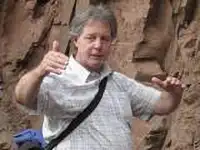
Duncan Hawley
Duncan first encountered the ‘greats’ of the heroic age of geology at school, He studied geology at UCL and recalls lectures featuring tales of early pioneers, and drawing rocks and fossils collected by Greenough in ‘practicals’. He has enjoyed a career as a geography and geoscience educator; working in schools, advisory services, fieldwork, teacher education and curriculum development. He is a past chair of the Earth Science Teachers’ Association and a Geographical Association Award winner. He is Chairperson of the Sheffield Area Geology Trust. Duncan has worked and published on the Old Red Sandstone and contributed to the BGS maps for Brecon, Talgarth and Hay-on-Wye. He has explored the work of geological pioneers in mid-Wales and traced the footsteps of Murchison to establish the site of ‘The first true Silurian’ in the Wye Valley. He has a particular interest in the development of geological maps.
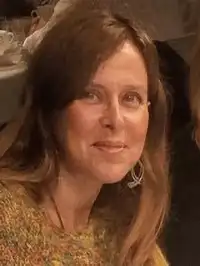
Consuelo Sendino
Consuelo has a strong background in curation, digitization, and collection research. Her education combines geology and informatics. She finished her PhD in 2008, when she moved to London and started to work at the Natural History Museum as curator of palaeoinvertebrates. She remained working there for 14 years overseeing the core Fossil Historical Collections, including those made by Sir Hans Sloane (the founder of the British Museum), Charles Koenig (first Keeper of the Department of Natural History and Modern Curiosities) and Thomas Pennant (an 18th century naturalist, antiquarian and collector) along with fossil bryozoans, sponges, and worms. Currently she is back in Madrid, her home city, working at Spain’s National Museum of Natural Sciences, in charge of digitization and preparing its data portal. She also an NHM scientific associate and continues researching the history of geology and the contribution made by women in science. She aims to highlight historical collections, built by women, that have since been forgotten. She is a Board Member and Global Delegate of the Association for Women Geoscientists (AWG), member of the International Bryozoology Association (IBA) and the International Fossil Coral and Reef Society.
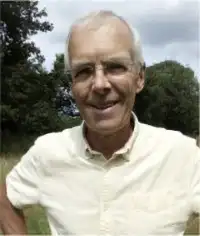
Gordon Chancellor
Gordon was born on a Thames sailing barge but grew up amongst the Palaeozoic rocks of Devon. He studied geology at University College Swansea, before jumping up to the Mesozoic with three years in Britain and overseas researching Cretaceous ammonite palaeobiogeography and a post-Doc at the Oxford University. From Oxford Gordon embarked on a varied career in museums and archives. He retired as Museum Development Officer for Cambridgeshire at the end of 2018. Gordon has pursued research on the work of Darwin and is an Associate Editor for the Darwin Online website. He has published on Darwin’s notes from the Beagle voyage and is currently researching Darwin’s scientific relationship with Charles Lyell and literary relationship with the novelist Elizabeth Gaskell.
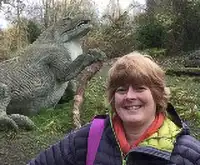
Cindy Howells
After graduating from University of Wales, Cardiff, Cindy became a palaeontology curator at the National Museum of Wales in 1985, and she can’t quite believe that she has been there some 37 years. Her palaeontological interests are broad, but tend towards fossils of the Upper Palaeozoic, Mesozoic and Cainozoic. Recent dinosaurian and footprint finds in South Wales (Glamorgan) have meant she has had to get up to speed on these aspects, and has been involved in several related research papers, and exhibitions within the museum. She is a long-term committee member of the Geological Curators’ Group, and membership secretary since 2007. She also serves on the committees for the South Wales GA group and the South Wales RIGS group.
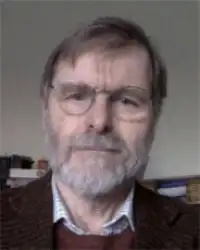
Peter Lincoln
Peter retired from careers in shipbuilding and school science-teaching to pursue his interests in history of science. An MSc dissertation project on the foundation of Ipswich Museum lead to a fascination with the person and character of William Buckland, whose life and work now form the focus of his further studies.
Devoid of any geological knowledge, Peter has nevertheless enjoyed and benefited from attendance at HOGG meetings, and hopes to be able to make some small contribution to the group during his term on the committee.
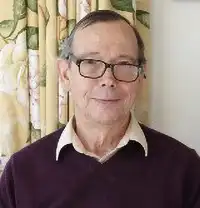
Jay Bosanquet
Although Jay is not a geologist, he became interested in the history of geology through an MA in History and Philosophy of Science and Medicine at Durham University in 2005-7, when he wrote a dissertation on John Phillips and the Age of the Earth. He had been a bookseller in Alnwick (Northumberland) and had noted the increasing profusion of popular books on both history of science generally and of geology in particular. He joined HOGG in 2005 and found it to be a welcoming and friendly group, whose field trips and conferences have been a great inspiration. For ten years he edited the History of the Berwickshire Naturalists’ Club, which includes geology in its scope, and was president of the Club in 2017-18.
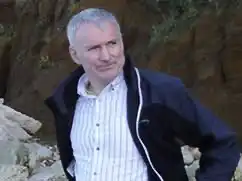
Andrew Hopkins
Bulletin Editor
Following his graduation in Geology from Imperial College, Andrew has spent most of his career in the (largely fruitless) search for oil and gas on behalf of various companies. He has also lectured in Further Education colleges. He completed a part-time PhD on Namibian contourites and eventually left the oil industry to undertake an MSc in the History and Philosophy of Science, following which he joined a research project at the LSE looking at how narrative is employed in scientific practice. Andrew is currently an Honorary Research Associate in the Department of Science and Technology Studies at UCL. He is particularly interested in the history of ideas in geology, and in understanding how we reconstruct the past on the basis of the often meagre evidence available to us in the present.
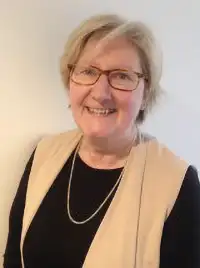
Anne Barrett MA, AIC, FIRMS
Anne is Imperial College Archivist & Corporate Records Manager. She has extensive experience in scientific archives and their management, enabling her to satisfy the diverse enquiries of internal and external users at Imperial College London, as well as engage in personal research. Externally, she works with national and international archival, records management and standards bodies. Her most recent publication is Women At Imperial College Past, Present and Future (2017, World Scientific), and she has contributed articles to Oxford Dictionary of National Biography. Her ‘secret’ interest and joy lies in geology, stemming from childhood fossil hunting on the beaches of Charmouth to a current-day fascination with the intriguing geological formations of the Lake District fells.
Chairperson: Duncan Hawley
Secretary: Duncan Hawley
Treasurer: Duncan Hawley
GeoHistories Editor: Peter Lincoln
Bulletin Editor: Andrew Hopkins
Website Manager: Consuelo Sendino
Geological Curators Group (GCG) liaison: Cindy Howells
Members: Anne Barrett, Jay Bosanquet, Gordon Chancellor, Piotr Krzyweic
Ex officio: Dr. Jennie Gilbert (Geological Society of London affiliate liaison)
Become a Member of The History of Geology Group
Membership includes:
Free access
Free access to all our online events
Reduced rates
At events, conferences and meetings.
News
Listing news of events (HOGG and associate societies) and other items likely to be of interest to members.
GeoHistories
The members’ magazine GeoHistories is now (since 2021) published twice a year in place of the earlier Newsletters. In addition, a regular emailed Bulletin is sent to all members and associates.
Forum
A lively forum for matters relating to the history of geology.
